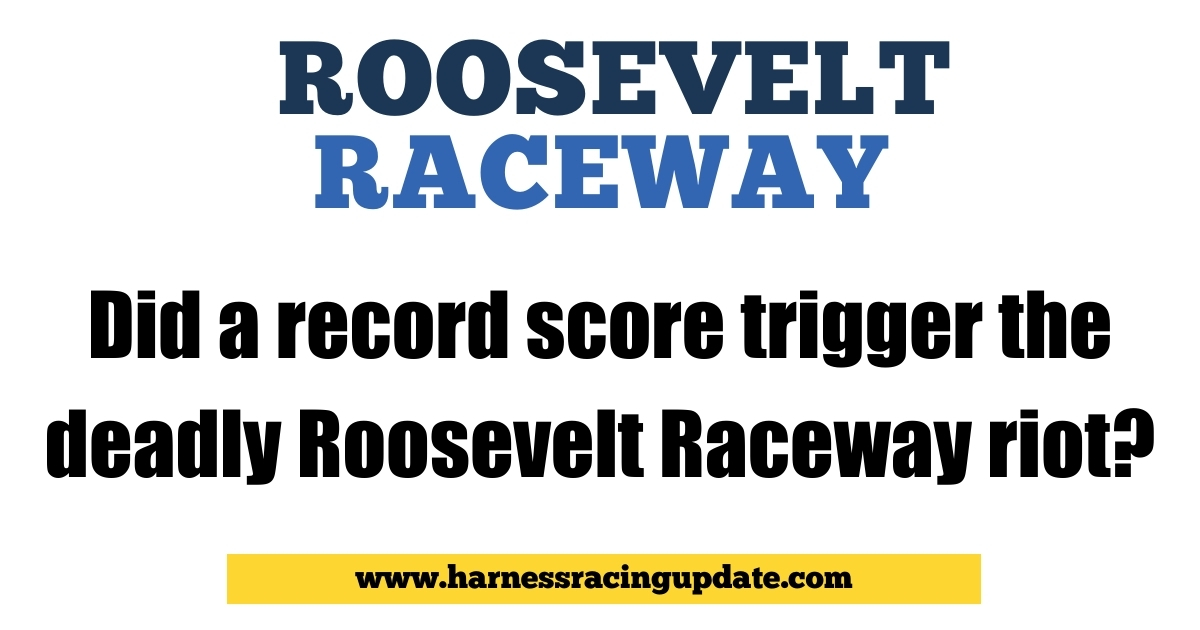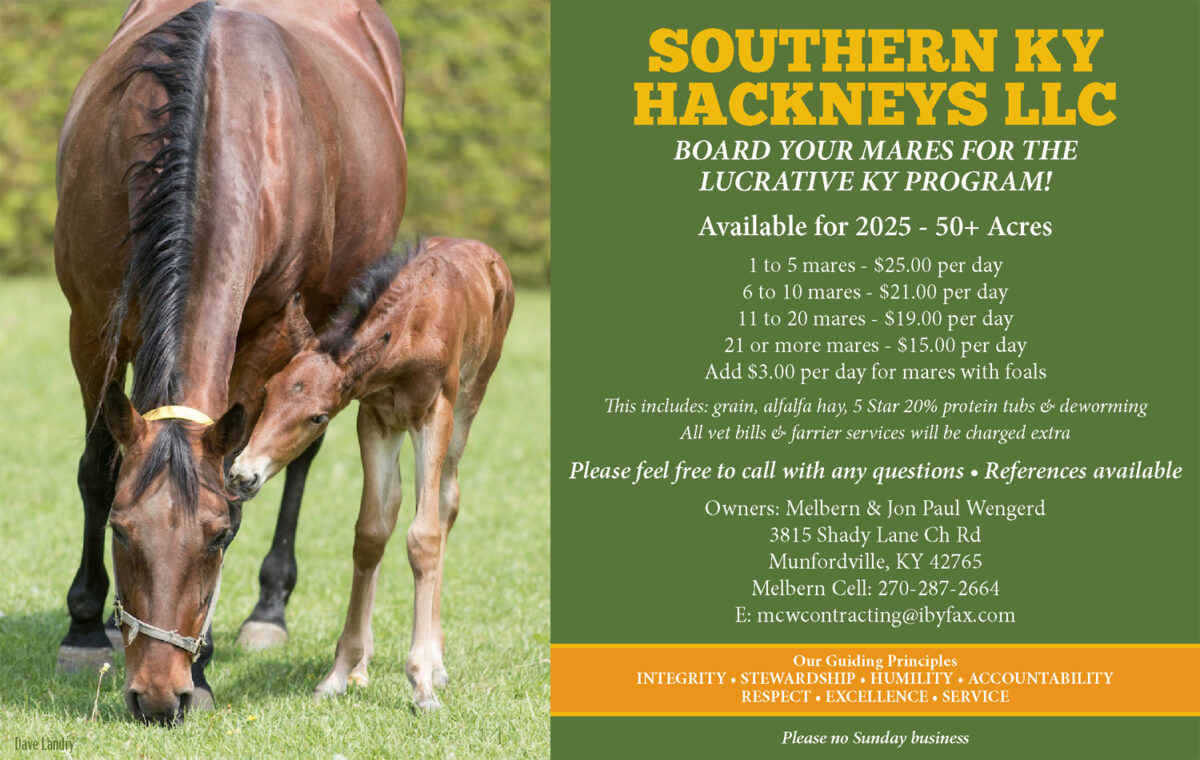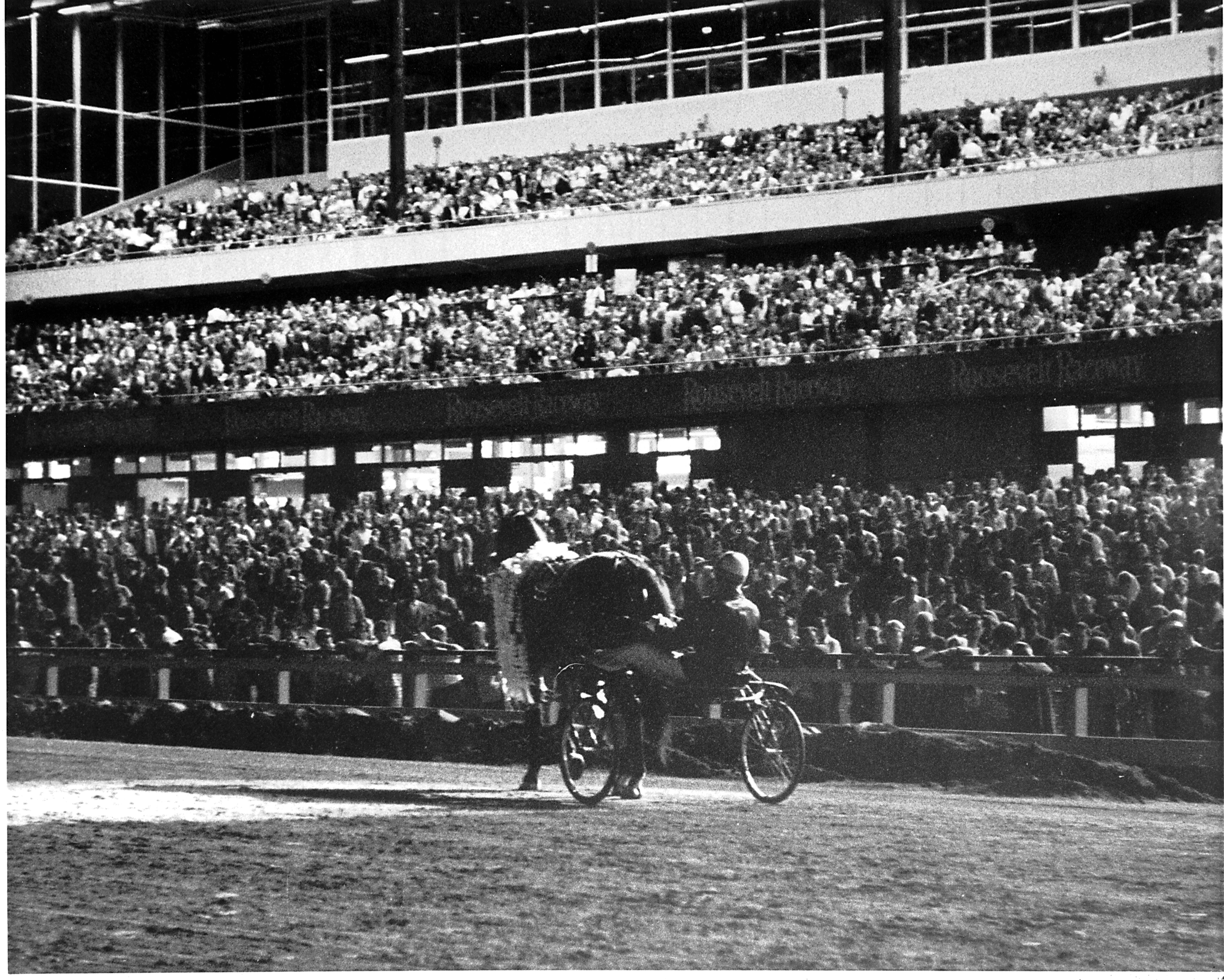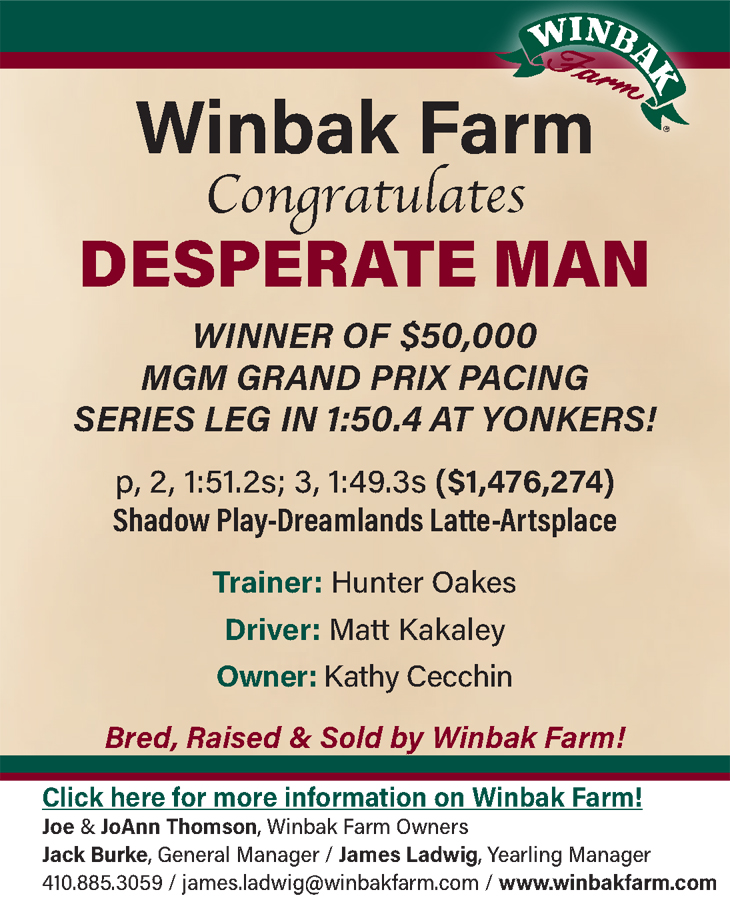Did a record score trigger the deadly Roosevelt Raceway riot?
In 1963, two days after a Connecticut bartender cashed a record ticket of nearly $80,000 at Roosevelt, a riot broke out at the Long Island track. Were the two events connected?
by Jay Wolf
As our fall days turn darker, we take a look back at one of the darkest days in harness racing history — the 1963 riot at Roosevelt Raceway that would cause more than $100,000 in damages, result in 15 arrests and the death of Roosevelt’s chief of security.
The riot could have easily had its start on Wednesday (Nov. 6), thanks to a record “twin double” ticket.
The twin double, or a double daily double, would require punters to select the winners of Roosevelt’s sixth and seventh races. Those successful after the first two legs would then exchange their ticket for a try at the eighth and ninth races.
Gusty winds (up to 40 miles per hour) and torrential rains made handicapping difficult that evening.
But a 39-year-old bartender from Waterbury, CT by the name of Joseph Mariano turned a $20 bill into a standardbred and thoroughbred record $79,660.30 on a $2 wager.
Adjusted for today’s value, that winning ticket would be worth more than $800,000.
The previous record was a twin double at Suffolk Downs for $68,228.80. The harness record was $37,116.10 set just three months earlier on Aug. 18, 1963 at Monticello Raceway.
That night at Roosevelt, Mariano purchased 10 “2-6” tickets and thanks to victories by Miracle Henry ($4.90 to win) and Sea Missile ($32.80) — both driven by Gene MacDonald — he found himself at the exchange window.
With 10 tickets at his disposal, Mariano keyed #5 Dixie Melody in the eighth race and selected “All” for the payoff leg.
Lee Benson, who would go on to train the 1975 Little Brown Jug champion Seatrain, steered Dixie Melody ($6.90) to a convincing win in 2:09 that evening over the half-mile Long Island oval.
With the Dixie Melody win, Mariano was guaranteed a winning ticket. How much it would pay was the only question. The winner of the final leg, a Grade C pace for 5-year-olds and up for $2,000, would determine the final amount.
There were 247 tickets in contention, #1 Spindletop’s Best ($1.85-1) would return $758.60. The 30-1 longshot, Lieut Byrd would bring home nearly $80,000.
Lieut Byrd, a 6-year-old gelding, was winless in his last 21 races and left from the outside post 8.
Carlton (Stanley Dancer) led the field of eight past the opening quarter in :30.3. Miss Delightful (B. W. Morris) grabbed the lead before the half-mile station in 1:02.2. Thirty-five-year-old Canadian pilot, Joe McAlduff, put Lieut Byrd into play, sitting sixth with cover at the half. Lieut Byrd went three-wide and stuck a nose in front at the three-quarters in 1:35.3. Holding off the late charge of Just Wait (Del Insko), Lieut Byrd was a half-length clear in 2:08.1.
The tote board showed $61.60 – $28.70 – $12.90, but the most important number was the twin double payout of $79,660.30 for the single winning ticket.
Mariano was a Wednesday night regular at the Westbury, NY plant. He would routinely make the nearly two-hour trip to Roosevelt Raceway. He hit the twin double for $575 earlier in the meet.
So how does a record setting ticket cause a riot just 46 hours later?
The publicity of instant windfall reignited the dreams of the tri-state residents. More than 16,000 went to the races on Thursday night and 23,127 would watch Friday’s Dexter Cup card.
The Friday card would start off kind of formful and slow – a $15.90 win ticket and a 2:06.1 mile highlighted the early card.
The fifth race was the $80,376.61 Dexter Cup won by Speedy Scot (Ralph Baldwin) in 2:11.2 over the mile and a sixteenth.
The sixth race was the first of the evening’s twin double where a total of 85,574 tickets were sold.
As the field of eight approached the three-quarter mile pole, Waygone (Robert Frame) was leading when the pocket-sitting Lynch Hanover (Joe MacDonald) tried to pass and stepped on the wheel of Waygone, causing a chain reaction incident. Canny Maid (Hugh Bell), Helen Boss (Joseph McAlduff), Dick’s Brother and Amber Dream were also involved and did not finish.
Knight Deposit (George Sholty) and Delaway (Marcel Dostie) were the only finishers.
Knight Deposit was declared the winner of the $2,600 pace, paying $35 and making just 3,563 twin double tickets alive.
Not satisfied with the judge’s decision and demanding a “No Contest,” many fans showed their displeasure with booing, throwing programs and eventually flooding out onto the track.
Hundreds of patrons smashed the tote board, set fires, broke windows, engaged in “hand-to-hand” combat with the police and attacked the judge’s booth, injuring judge John DeMatteo.
At least 15 patrons and five police officers were injured and the raceway’s chief of security, Conrad H. “Connie” Rothengast died of a heart attack at the onset of the riot.
Rothengast, 65, was a three-decade New York Police Department veteran, and retired from the NYPD as a Chief Inspector in 1953. He joined the force in 1921 and received numerous citations for outstanding work, including driving notorious gangster Arthur “Dutch Schultz” Flegenheimer from the city.
Nearly 150 police officers were called to the track. Service revolvers and tear gas guns were drawn, but no shots were fired.
Twelve ambulances were sent and the Westbury Fire Department was called in and used their hoses to keep the rioters back while they extinguished the numerous fires.
The riot was declared “under control” at 11:55 p.m., about an hour and 15 minutes after it began.
The final three races were cancelled and the $145,745 net pool in the Twin Double was distributed as a consolation payout of $40.80.
The Nassau County police confiscated movies taken during the riots. Fifteen patrons were arrested, charged with everything from unlawful assembly to felonious assault.
The riots did little to affect attendance and wagering at Roosevelt Raceway. The following night, 31,398 patrons and plain clothed policemen attended the nine-race card, wagering $2.2 million.
In 1964, the largest twin double was hit for $172,726.80 at Roosevelt Raceway.
The ultra-large jackpot twin double wager would eventually lead to counterfeit tickets and tax evasion schemes. The wager was eventually banned at New York and Pennsylvania harness tracks and was eventually replaced with a Pick 4.
Roosevelt Raceway closed in July 1988 after 48 years of racing.


















